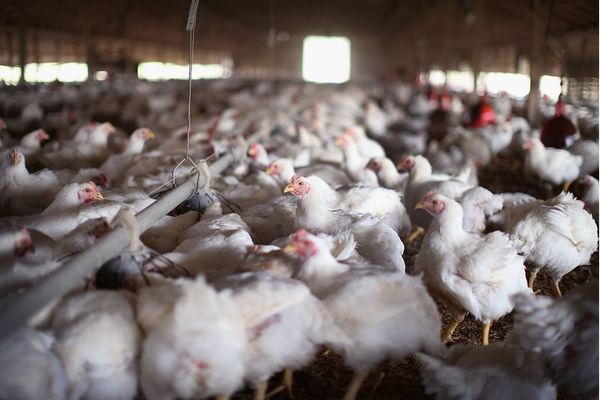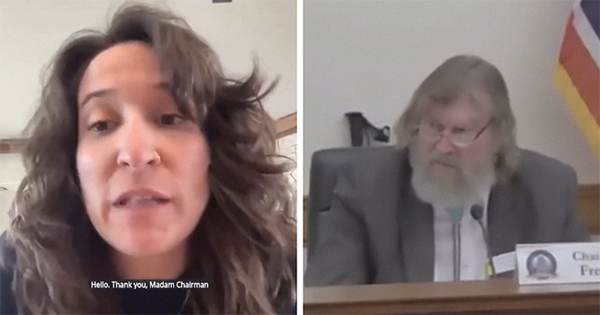
Oil markets thrust an arm out of the grave Thursday with an unprecedented, if brief, 40 percent gain after U.S. President Donald Trump said he’d secured an agreement with Russia and Saudi Arabia to take as many as 15 million barrels off the market to shore up collapsing prices in the face of the coronavirus shutdown.
But, market reaction aside, it’s not remotely clear what he is talking about.
There is no actual agreement to trim production among the three biggest oil producers—the United States, Saudi Arabia, and Russia—let alone the other members of OPEC or other countries, like Mexico or Brazil. And it’s also unclear what Trump was even referring to in terms of production cuts—whether total barrels of oil or barrels per day or who might be making the cuts or why.
Saudi Arabia, on the heels of Trump’s tweets, said it would like to have an urgent meeting among OPEC and non-OPEC members to start discussing output cuts in weeks or months to come; in the meantime, Saudi officials are as mystified as everyone else with Trump’s invented numbers. Russia simply denied everything.
All the while, global demand for crude oil has absolutely cratered to a degree never before seen thanks to the coronavirus and the subsequent shutdowns of much of Asia, Europe, and parts of the United States, with demand down between 20 million and 30 million barrels a day, making any effort to lock the barn door now an exercise in futility.
“They can take as much as they want off the market, but there is enough already in and still headed to storage, and if anything, the demand picture is only going to get worse in the United States and Europe over the next six weeks,” said Niamh McBurney, the head of Middle East and North Africa at Verisk Maplecroft, a risk consultancy.
Unemployment claims in the United States shattered previous records, with more than 6.6 million new claims in the last week—bringing the toll from the pandemic to 10 million in just two weeks, with more to come. Spain and other European countries also broke records with new unemployment claims, underscoring just how the virus has paralyzed economic activity across the entire world.
“This is where the Russians were right” when talks among OPEC and its partners broke down early last month, she said. “There is no amount you can cut to make up for that gap.”
Crude oil prices came back to earth a little bit later Thursday, with increases of about 20 percent in New York and London, which still left prices in the mid-$20s per barrel, disastrous for U.S. producers and painful for Russia and Saudi Arabia.
But what seems clear is that the catastrophic collapse in oil demand is focusing minds, to some extent, from Midland to Mecca, if not yet to Moscow. The problem for oil markets is less the oil price war that Russia and Saudi Arabia unleashed last month—partly in a bid to sink competition from prolific U.S. oil producers who need higher prices—than the coronavirus pandemic and its aftermath.
Trump plans to meet Friday and over the weekend with chief executives of big U.S. oil firms that are struggling with prices about half where they need to be for profitability; one big U.S. oil company declared bankruptcy this week. Options on the table include some sort of coordinated production cut, targeted relief for troubled oil firms, or government purchases of excess oil, either to stash in the strategic reserve or, perhaps, on rail cars.
Markets seem to be expecting a grand bargain, with Trump strong-arming U.S. producers into making cuts and Russia, Saudi Arabia, and other big oil producers following suit. But unlike in Saudi Arabia, and to a degree in Russia, oil in the United States isn’t a state-run business. That makes it hard for leaders like Trump to guarantee cooperation, especially when big oil producers seem happy to ride out the carnage and pick over the remains of smaller, independent oil companies. (Meanwhile, the top regulator of the oil industry in Texas said he is talking with Saudi Arabia about large coordinated cuts.)
“It’s not very likely that the United States is going to join” any formal output cuts, said Ann-Louise Hittle, the vice president of oils research at Wood Mackenzie, an energy consultancy. “So the question is: Is Saudi Arabia going to cut a lot and Russia a little bit? There is a big step yet to occur.”
The problem is compounded by the relative resilience of Russia and Saudi Arabia, both of which can pump oil a lot more cheaply than U.S. producers can, giving them more staying power. Even with lower prices, Saudi Arabia’s increased output over the last two months means its total revenues are about the same. And both countries have close to half a trillion dollars in reserves to weather a few years of prolonged low oil prices—a luxury the heavily indebted U.S. oil companies don’t have.
“The Saudis are one of the few producers who are in that position: They can flood the market, produce as much as they want, and still make money,” McBurney said.
One reason—beyond the unprecedented drop in oil demand—the Saudis may be more willing to countenance the kind of truce in the oil wars that Trump suggested is the startling deterioration of relations with the United States. U.S. lawmakers had previously taken aim at lots of Saudi policies, from the war in Yemen to its role as the ringleader of an oil cartel. But that anti-Saudi rhetoric has amped up of late, with some U.S. lawmakers threatening U.S. military aid to the country, and with the prospect of tariffs on imports of Saudi oil on the table.
“The bilateral relationship is probably at the lowest ebb it’s been at for a while,” McBurney said.
The realization that the decades-old U.S. security relationship with Saudi Arabia could be at risk as its oil price war puts the U.S. oil patch squarely in the crosshairs could have led to a belated change of heart in Riyadh, suggested Jason Bordoff, the director of the Center on Global Energy Policy at Columbia University.
“I think the U.S.-Saudi diplomatic relationship is something very important to the kingdom—and which was clearly strained recently—as is its desire to have a reputation as a responsible stabilizer of oil markets,” he said.







